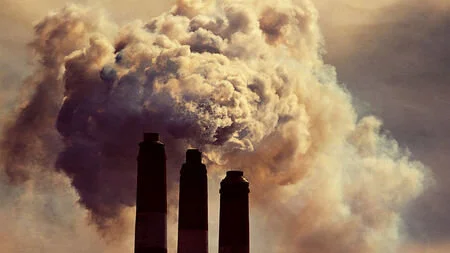President Biden took office in January of this year, one of his stated priorities was addressing climate change and the impacts of this are already becoming apparent. The day Biden took office, he canceled the permit for the Keystone XL pipeline. The pipeline’s purpose was to transport crude oil from Western Canada to Nebraska. It was proposed in 2008 and vetoed by the Obama administration in November 2015. This was believed to be the end of the pipeline; however, immediately after taking office in 2016, Donald Trump signed an executive order to continue the pipeline.
Weekly Climate News
December 3, 2020
Outdoor heating systems have made an emergence into the outdoor dining scene as a result of the pandemic. Read this article on how they impact the environment.
A compromise was reached between European and Saudi Arabian leaders on climate change at the G20 summit.
Bates Smart, an architecture firm in Melbourne, Australia, made plans to turn 1,200 acres of empty parking garage roofs into rooftop gardens.
A joint U.S. and European satellite that will monitor the world’s oceans and the rise of global sea levels launched Nov. 21.
Global warming makes Northeastern forests more susceptible to the large-scale wildfires that frequently light up the western United States.
Natural disasters are increasing around the world, leaving marginalized and less advantaged communities in extremely dangerous living conditions.
The United Nations will make building a global net-zero emissions coalition a priority for 2021.
Canada is set to put a goal for net-zero emissions by 2050 into law.
New Zealand declared a climate change emergency.
Weekly Climate News
November 19, 2020
U.K. Prime Minister Boris Johnson announced a 10-point plan for a “green industrial revolution” with the long-term goal of achieving carbon neutrality by 2050. The plan includes an increase in green investments along with the creation of 250,000 jobs in the sector.
The U.N. approved a fuel efficiency deal with the International Maritime Organization that allows shipping emissions to decrease by only 1 percent until 2030, despite much opposition to the inadequacy of the deal.
With no plans to achieve carbon neutrality before the end of the century, Russia is looking to expand its Arctic gas industry.
U.S. President-elect Joe Biden stated that he will “name and shame global climate outlaws,” indicating that a hard line on climate will be drawn under the incoming administration. Potential climate outlaws may include Australia, Brazil, Russia, Mexico, Indonesia, China and Saudia Arabia.
The Trump administration will face challenges if it moves forward with its plan to sell the Arctic National Wildlife Refuge.
Gov. Gretchen Whitmer announced that Line 5, an underwater pipeline that provides Ontario with oil from refineries in Michigan, will be shutting down due to environmental concerns. The pipeline has been in operation since the 1950s.
Tucson, Arizona, experienced record-breaking heat this September, which prompted city officials to declare a climate emergency. Read this article on where they stand now.
Astypalea, a Greek island in the Aegean Sea, will be replacing all fossil fuel cars with electric vehicles as part of its climate-neutral approach.
A new study found that urban greenery adds CO2 to the atmosphere through decomposition, which increases overall greenhouse gas emissions.
Weekly Climate News
Updates for September 10th
A record-setting heat wave swept through Southern California reaching a high of 121 F. The National Weather Service issued an excessive heat warning on Sunday, Sept. 6 for areas in Los Angeles, Ventura, Santa Barbara and San Luis Obispo counties.
California is grappling with an unprecedented wildfire season made worse by the historic heatwave. Over the Labor Day weekend, about 200 hikers in the Sierra Nevada National Forest trapped by the spreading flames had to be airlifted out by helicopters.
The heatwave and wildfires in the West, a massive derecho in the Midwest and the record-breaking 2020 hurricane season illustrate an extreme climate future. Read about the connection between these weather events and climate change here.
The European Environment Agency confirmed on Tuesday, Sept. 8 that environmental factors such as air pollution and heatwaves worsened by climate change contribute to around 13 percent of all deaths in Europe.
Ministers from 11 African countries met virtually on Monday, Sept. 7 to discuss progress on implementing the Great Green Wall, an initiative to develop a 15-kilometer-wide and 8,000-kilometer-long vegetation strip across Africa said to be integral in coronavirus recovery.
Oil refineries in the Louisiana petrochemical industry have been impacted by recent hurricanes, dumping harmful substances into the environment and disproportionately impacting communities of color.
EPA relaxes standards that limit toxic waste and regulate wastewater from coal-fired power plants. Environmental groups claim this makes rivers and streams more vulnerable to contamination by corrosive pollutants like lead, selenium and arsenic.
Communities permanently affected by environmental damage or economic disinvestment are known as “sacrifice zones.” Read this article about how these areas are currently on the front lines of both climate change and the global pandemic.
Read about these organizations which are helping the youth of color enjoy the outdoors in the middle of the global pandemic.
In Ottawa, Canada, farming techniques that reduce greenhouse gas emissions are being developed.


